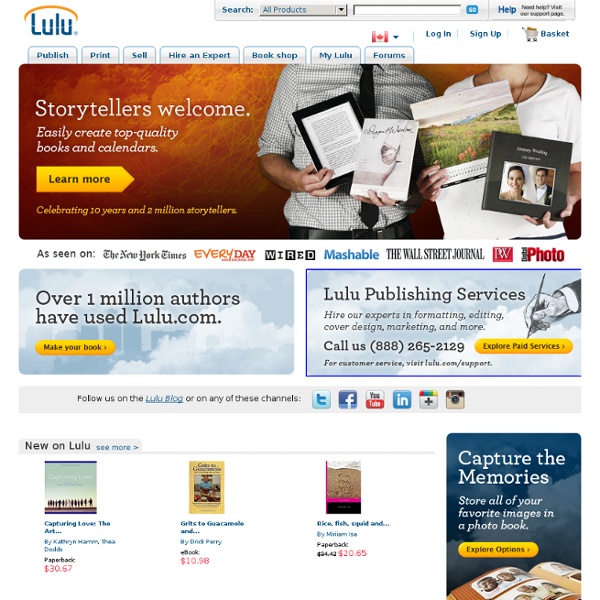Self Publishing with Outskirts Press
In the wake of new stories about traditionally published authors earning “six figure advances” Outskirts Press author Gang Chen earns six figures in six months and keeps all his rights, which means he can earn another six figures in another six months, long after a traditional advance would be gone. Self Publishing Author Earns Over $100,000 in Just Six Months with Outskirts Press Denver, CO and Irvine, CA – Outskirts Press, the fastest-growing full-service self publishing and book marketing company, today announced that one of its authors has earned over $100,000 in author royalties in six short months. Gang Chen, the self published author of Planting Design Illustrated and LEED AP Exam Guide, received a royalty check in the amount of $77,611.88 for books sold between January-March. This follows a royalty check of $33,679.56 that Chen received from Outskirts Press for books sold the previous October-December. About Outskirts Press, Inc.
BookPOD - print-on-demand book printer
iBooks Author
You can submit your book for publication on the iBooks Store, or export it in a variety of formats and distribute it yourself. Before you can publish to the iBooks Store, you need to do the following: Get an Apple ID (a user name you can use to shop the iTunes Store, log in to iCloud, and more). If you don’t have an Apple ID or aren’t sure if you have one, go to the My Apple ID website. Sign up for a Free or Paid Books Account. After iBooks Author creates your book file for you, make sure the file is no larger than 2 GB (the iBooks Store file size limit). Readers using a 3G connection can’t download books larger than 20 MB. Books submitted to the iBooks Store using a Paid Books Account can be protected by Apple’s proprietary FairPlay DRM (digital rights management) system, which helps prevent unauthorized duplication of your book.
Print on demand
An on demand book printer at the Internet Archive headquarters in San Francisco, California. Two large printers print the pages (left) and the cover (right) and feed them into the rest of the machine for collating and binding. Depending on the number of pages in a given book, it might take from 5 to 20 minutes to print Print on demand (POD) is a printing technology and business process in which new copies of a book (or other document) are not printed until an order has been received, which means books can be printed one at a time. Many traditional small presses have replaced their traditional printing equipment with POD equipment or contract their printing out to POD service providers. Book publishing[edit] Print on demand with digital technology is used as a way of printing items for a fixed cost per copy, regardless of the size of the order. POD has other business benefits besides lower costs (for small runs): Other publishing[edit] Service providers[edit] Self-publishing authors[edit]
Apple iTunes Books
Australian Self Publishing Group
US ISBN Agency - ISBN Assignments, SAN, Bookland EAN Bar Code Symbols, Technical Information and Advice
"ISBN" stands for "International Standard Book Number". An ISBN is a number, not a bar code. One agency per country is designated to assign ISBNs for the publishers and self-publishers located in that country. The U.S. ISBN Agency cannot assign ISBNs to publishers and self-publishers located outside the United States and its territories. The ISBN identifies the title or other book-like product (such as an audiobook) to which it is assigned, but also the publisher to be contacted for ordering purposes. ISBNs are assigned to publishers and self-publishers as follows: 1, 10, 100, 1,000, 10,000 or 100,000 numbers. When participating in the ISBN standard, publishers and self-publishers are required to report all information about titles to which they have assigned ISBNs. Note about 979 ISBNs: ISBNs beginning 979 will not be issued in the United States for at least several years until current inventories of ISBNs are depleted.
Book Publishing : Print On Demand for Australian Independent Authors



